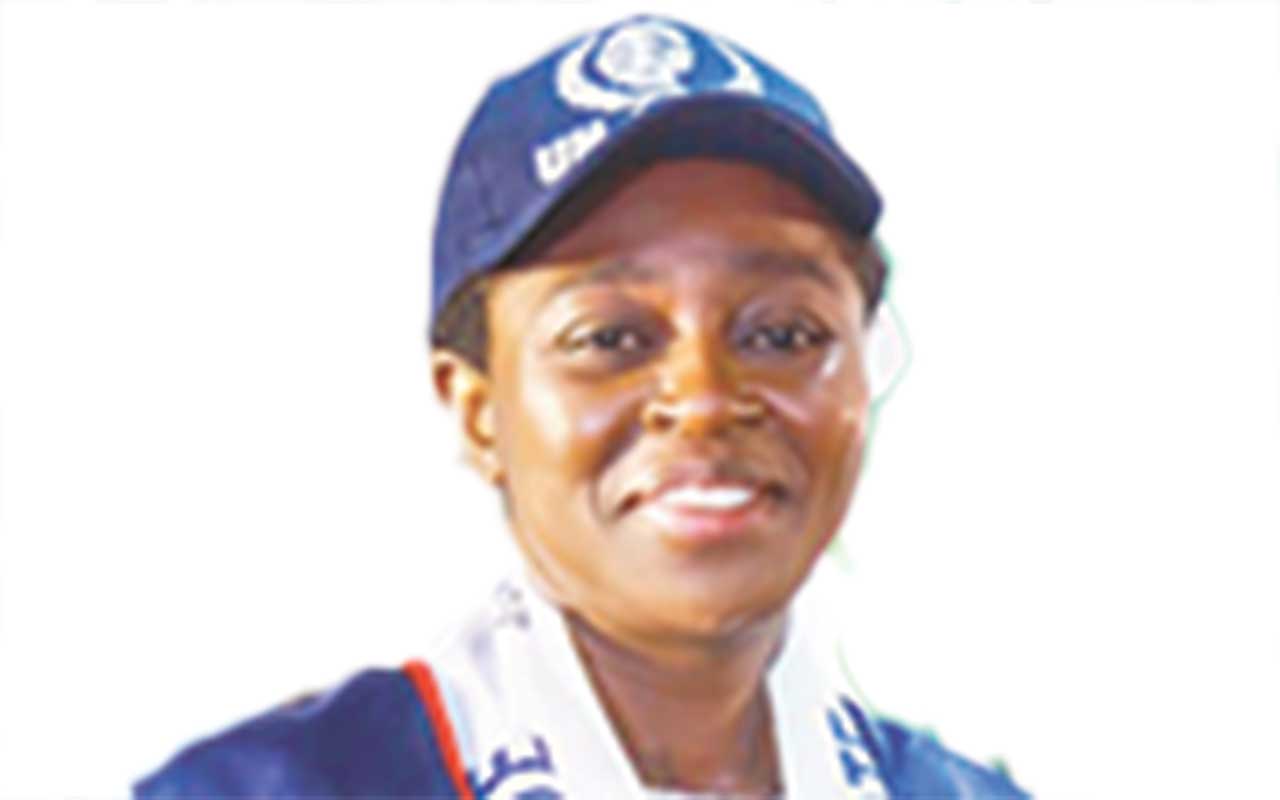
What exactly led to your appointment as UN-POLAC Peace Ambassador?
The appointment came as a complete surprise to me because such awards are often given to prominent individuals — those in the global spotlight, individuals working with the United Nations (UN) or those involved in significant government roles. The appointment mandated me to enroll for a rigorous training to be a certified peace mediator from the UN – POLAC Peace College. I deeply value the principles of UN and UN-POLAC, which I have adopted in my organisation, SpeakOut, a non-profit outfit dedicated to supporting girls, teenagers, women and individuals who are abused or have been abused, bullied or vulnerable. SpeakOut empowers people to stand up against societal injustices, gives a voice to the voiceless and addresses societal ills and challenges.
Were these all that earned you the appointment?
I cannot say for sure, but certainly, they would not grant the appointment to someone who is not making any positive impact on his or her community. More so, the letter I received stated that my nomination was made following an extensive review of my track records in community impact and development.
With your appointment, how do you plan to impact African communities?
The ultimate goal is to make a significant and lasting impact. My education project for a start aims to boost education in Africa and around the world. I am taking a hands-on approach in the execution of my duties as a certified Peace Mediator and a Peace Ambassador. Naturally, I have a deep passion for education and recently, I received an honorary doctorate degree in recognition of my efforts to encourage learning and enhance knowledge among young people. I will be launching a nationwide initiative to support the education of the underprivileged youths. My objective is to ensure that every Nigerian child, irrespective of his or her family’s low financial status goes to school. This project will support students from primary school level to the university. It will also be extended to homeless youths living in slums and under the bridges.
What are your plans for war-torn African countries?
To effectively address the issues, one requires both understanding and confidence. Often, we look to foreigners to handle African problems and to mediate issues affecting Africans. While these external experts bring valuable knowledge and experiences, their understanding is inherently limited. The knowledge of these foreign experts ends where the knowledge of the local people begins and this shows that foreigners cannot fully grasp the intricacies of African cultures. Therefore, the best approach to use to solve African problems is to adopt African-oriented solutions, which can only be achieved by appointing Africans themselves as mediators.
While foreigners can derive theories and solutions from history and other human experiences, their practical application will never match the insight of someone on the ground. This distinction highlights why practical, on-the-job experience is more valuable than theoretical knowledge. My familiarity with local conditions and culture gives me an advantage in peaceful mediation across Africa. I am aware of the facts and factors through my involvement with the UN-POLAC, which to my best knowledge is an organisation that is well equipped and experienced in the area of conflicts resolution and peace mediation. A testament to this is the number of crisis cases that are referred to the organisation by other UN agencies for resolutions.
In dealing with crises that include terrorism and banditry, understanding the human elements behind these anti-social actions is crucial. Those involved are citizens of the various African nations and resolving these issues will start with the understanding of their motivations and backgrounds. I strongly believe that the perpetrators of violence are not beyond human reasoning; they are capable of being engaged in a dialogue if they are rightly approached and also, if the right methods are employed. There are several instances of governments trying to engage them in dialogue through insiders. This is because to confront an adversary, one must first understand them. Conversations can sometimes lead to unexpected resolutions, as understanding the other side can shift perspectives and foster practical solutions.
Some people see the girl child as being disadvantaged and regret having girls. Reflecting on this persistent bias, how do you intend to change this narrative?
I have always been an advocate for girl child and women empowerment. To me, women represent wealth. Show me a woman and I will show you the wealth around her. Point to me a girl child and I will show you where the future wealth from her will emerge. In the past, there was the belief that a girl child would not bring any tangible benefit to her family, while the boy child was seen as a source of prosperity and a medium to continue their family lineage. This has turned out to be a misconception. Women are now heads of businesses and they are excelling. They are excelling because of their meticulous organisational skill and the ability to pay attention to details. I am not against any gender, but it is important not to underestimate the power of the girl child. Women are patient, resilient and know how to “get water out from a rock.”
How will your position be of benefit to Nigeria and Nigerians?
My youth project will start from Nigeria before expanding it to other African countries. I believe in the principle of charity begins at home. Given the high poverty rate in the country, providing a child with quality education will potentially break the cycle of poverty in his or her lineage. Attaining the goal of ensuring that every child gets a good education is the first step towards addressing many problems. The project will enable children to progress from primary school to secondary school and later to university without financial strain on their parents.
How do you intend to address the issue of child soldiers in war-torn zones on the continent?
Child soldiers are not from another continent; they are Africans and have families; so, our efforts will start from their families. We will collaborate with the Economic Community of West African States (ECOWAS), a key regional organisation in West Africa, to reach out to their families. We shall use the Back-to-School project and also partner with parents, local organisations and religious groups to address the issue of child soldiers. We shall design policies that will engage parents, community leaders and facilitate the flow of UN programmes through ECOWAS to individual countries, local authorities, schools, religious institutions and even homes. This strategy will prepare every child for positive change and to foster improvements in their communities. Changing the mindset of these child soldiers to something more positive will take away their interest from carrying weapons to building their communities for good.
Additionally, we will look into the reasons these children are involved in local conflicts and work with their parents to bridge the gap between the home and the society, while helping the children to see the bright future ahead of them.
What is your take on Nigerians in the Diaspora?
I am deeply filled with joy each time I see or hear of Nigerians achieving great success and breaking new barriers around the world. I always wish they could make such valuable contributions at home too. If everyone contributes his or her quarter to the development of our country, Nigeria would be great. The truth is, Nigeria has immense human and natural resources that are yet to be harnessed.
Looking at Edo State, how would you handle the issue of human trafficking and prostitution across African borders?
Prostitution is a global issue; although people from Edo State at a time were leading the trail in Nigeria, practicing the trade in Europe and other continents across the globe. Fortunately, there has been a noticeable decline in Edo State indigenes getting involved in the trade if you compare the number of prostitutes from the state in the past and now. I monitor the situation closely and have observed that. Historically, many young girls from Edo State were misled about the opportunities abroad and were coerced into prostitution. This exploitation persisted for years, largely hidden from public view, until it gained the attention of many people. After that, the Edo State government starting with the regime of Lucky Igbinedion and continuing under successive administrations began to address the issue. However, the royal pronouncement of Oba of Benin discouraged many people from carrying out the trade at the magnitude it was and this has significantly boosted the nation’s image. I remember watching a video of sex slaves in Italy celebrating their liberation, which is a testament to the effectiveness of the Oba’s intervention. The same approach could be applied in other regions, whether in the eastern, northern or western part of Nigeria. State governors, traditional rulers and local council chairmen should all play their parts to put an end to human trafficking.
How does the body get its funds?
Funding has been a challenge in this part of the world, partly because many people don’t realise the impact of the institution and to support its cause. If each person can donate just N1, 000 per month, it would significantly support our numerous projects and save many lives. In other countries in Europe and the U.S. people are more aware of this concept of giving; you would find donation boxes in supermarkets for the UN and other charities.
Africans need to adopt this practice and develop a similar attitude, particularly since agencies, including UN-POLAC, provide valuable services in places where the federal or state budgets are insufficient to cover. We need to prioritise investing in organisations like UN-POLAC that uses its expertise and extensive networks to drive meaningful change in the society and impact human wellbeing.
You are so passionate about peacekeeping; what is your driving force?
I aim to contribute to the country’s development and by extension Africa. We have only explored a fraction of Nigeria’s human and natural resources; in fact, we have not even tapped up to half of it. Therefore, my focus is on fostering peace, as it is essential for achieving progress and any meaningful development in the world, especially Nigeria.
With these laudable projects, are you not preparing for politics?
I do not have an interest in politics. Although I do not know what the future holds for me, my focus right now is on my work. My passion lies in the projects I am working on and those I am yet to start. I am dedicated to giving my best to anything I do. As a Peace Ambassador, I intend to explore societal issues and find ways Nigerians can benefit from the very many programmes and expertise of the UN-POLAC, especially in the area of conflict resolution and crisis management. I am also concerned about how Africans can better utilise their resources for the development of Africa. Given my current focus, adding a political role to my responsibilities would be challenging for me.
With your new role that would take you across the globe, how do you intend to sustain your company, Eleo Designs?
I am currently decentralising authorities by engaging others to manage different sectors of my company. I am not interested in being the sole leader, issuing orders. For a business to succeed, it requires intellectual engagement and ongoing innovation. This means continually exploring new methods and researching various projects. Lately, I focused on leveraging the knowledge of the younger generation and soon, you will begin to see young and talented individuals playing significant roles within the Eleo Group. Many organisations overlook these bright, forward-thinking young people, who are often engaged with social media. I plan on channeling their potential towards making meaningful contributions in the society through my organisation.





